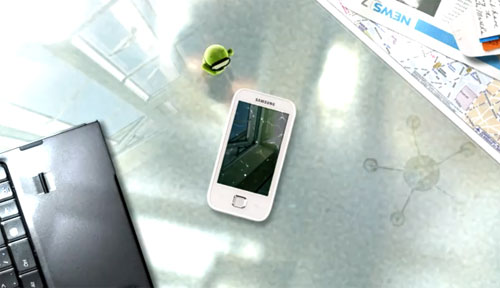Are you confused with all this fuss on resistive and capacitive touch screens coming with the smart phones these days? Let me try to help you out in choosing which may work best for you.
First of all, let me try to explain what a Capacitive touch screen and a Resistive touch screen is, in scientific terms.
Capacitive touch screen: The capacitive touch screen is made up of a glass panel that is coated with a material.
The property of this material is that it can store electrical charge. So the capacitive touchscreens basically stores electrical charge.
But for good, Human body can also store charge. So, when you touch this screen with your finger, some of these charges on the screen gets transferred to your finger. The oscillator circuits located at the corner of your system will then sense this decrease in the charge on screen and the spot the exact location where touch occurred, and then transfers this specified information to the touchscreen driver software.
Resistive touch screen: Resistive touch screen, on the other hand is again made up of normal glass panel. However, this glass panel in this case is coated with three layers.

Two of these layers being conductive and resistive are kept apart using spacers while the third scratch-resistant layer covers the whole setup
When the resistive touch screen system is running, current flows through these layers. On a finger touch, the two layers get connected and change in electrical field occurs. The system calculates the coordinates of point of contact and passes them to touch screen driver software.
Now that you understand how Capacitive touch screen and Resistive touch screens work, lets figure out Pros and Cons of each of these touch screens.
Capacitive touch screen:
Pros:
- Multi touch support available
- Visibility good even in sunlight
- Highly sensitive to finger touch leading to ease of use
- Not prone to dust particles
- Glossy look and feel
Cons:
- Need to have atleast 5% humidity to achieve capacitive effect
- More expensive than Resistive touch screen
- Doesn't work with inanimate objects/fingernails/gloved fingers
- Latest technology, may need to evolve a bit more!
Resistive touch screen:
Pros:
- Relatively cheaper
- Can operate with any pointing devices like stylus, pen, nail etc
- Can operate at any level of humidity
- Ease of use, as it could be used even with your winter gloves on!
- Very useful for people using handwriting recongition system, due to ease of use with a stylus!
- More accurate than capacitive touch screen!
- Old technology and hence more reliable!
Cons:
- Multi touch support not available. Though technology did evolve after some modifications with the existing resistive touch screen circuitry, its still not 100% developed yet!
- Highly sensitive. As it can operate with almost any sort of pointing devices, can be more vulnerable with dust particles!
- Poor visibility in sunlight, mostly due to multiple layers reflecting light!
- Screen, being sensitive at the upper layer, can be more vulnerable to scratches!
So, now that you know the difference between Capacitive touch screen and a resistive touch screen, along with some of its associated pros and cons of each of them, you should now be in a better position to judge which touch screen might be suitable for you!
 The chargers are quite small and do not weigh much so if you are required to stay under a weight limit then there is a good chance that the device will not impact on the limitations. They also work with a fairly wide variety of devices. If you can draw power and recharge the item you want to charge via your computer, then it will most likely work with the portable charger. The price charged for these devices is not exuberant either. If it can save you a few hours of boredom on a long trip it is well worth the price.
The chargers are quite small and do not weigh much so if you are required to stay under a weight limit then there is a good chance that the device will not impact on the limitations. They also work with a fairly wide variety of devices. If you can draw power and recharge the item you want to charge via your computer, then it will most likely work with the portable charger. The price charged for these devices is not exuberant either. If it can save you a few hours of boredom on a long trip it is well worth the price.








.jpg)













